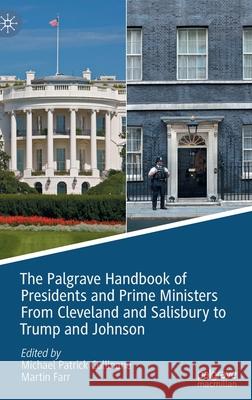The Palgrave Handbook of Presidents and Prime Ministers from Cleveland and Salisbury to Trump and Johnson » książka
topmenu
The Palgrave Handbook of Presidents and Prime Ministers from Cleveland and Salisbury to Trump and Johnson
ISBN-13: 9783030722753 / Angielski / Twarda / 2022 / 476 str.
The Palgrave Handbook of Presidents and Prime Ministers from Cleveland and Salisbury to Trump and Johnson
ISBN-13: 9783030722753 / Angielski / Twarda / 2022 / 476 str.
cena 887,69
(netto: 845,42 VAT: 5%)
Najniższa cena z 30 dni: 848,19
(netto: 845,42 VAT: 5%)
Najniższa cena z 30 dni: 848,19
Termin realizacji zamówienia:
ok. 22 dni roboczych.
ok. 22 dni roboczych.
Darmowa dostawa!
Kategorie BISAC:
Wydawca:
Palgrave MacMillan
Język:
Angielski
ISBN-13:
9783030722753
Rok wydania:
2022
Wydanie:
2021
Ilość stron:
476
Waga:
0.88 kg
Wymiary:
23.39 x 15.6 x 2.87
Oprawa:
Twarda
Wolumenów:
01
Dodatkowe informacje:
Wydanie ilustrowane











